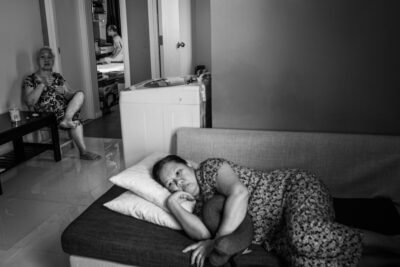“Why didn’t they just leave?” It’s a question asked far too often and far too casually.But the real question is: Why do we keep asking that, instea
“Why didn’t they just leave?”
It’s a question asked far too often and far too casually.
But the real question is: Why do we keep asking that, instead of asking what made them stay—and what we can do to help them safely go?
The truth is, leaving an abusive relationship is never simple. Survivors of domestic violence often face a tangled web of emotional, psychological, financial, physical, spiritual, and societal barriers. The reasons are many, and they’re deeply rooted in both personal circumstance and systemic failure.
Let’s talk about it—plainly, honestly, and without judgment.
💔 1. Fear—Real, Valid Fear
Many Survivors know that the most dangerous time is when they try to leave. Abusers often escalate their violence when they feel a loss of control. Leaving isn’t just hard—it can be life-threatening.
🧠 2. Psychological Manipulation & Trauma Bonding
Abusers use cycles of love and cruelty to create confusion and dependency. One day it’s gifts and apologies. The next day, it’s threats and gaslighting. This back-and-forth creates a trauma bond that’s emotionally powerful and hard to break, even when a Survivor knows they’re being harmed.
💸 3. Financial Dependence
Many Survivors don’t have access to their own money. Some don’t even have control over basic necessities like food, a phone, or transportation. Without a financial safety net—or even access to their own ID—leaving becomes a monumental risk.
👶🏾 4. Children & Custody Concerns
Survivors often stay to protect their children. Courts don’t always understand coercive control or hidden abuse, and some abusers manipulate the legal system to punish the Survivor. Many parents stay until they believe it’s safe to leave with their children—or risk losing them altogether.
💔 5. Shame, Stigma & Isolation
Abuse thrives in silence. Survivors are often isolated from friends, family, and community. Some have been shamed into believing the abuse is their fault. Others worry they won’t be believed or supported—because too many times, they weren’t.
✝️ 6. Spiritual & Cultural Pressures
In some communities, women are told to endure for the sake of family, faith, or culture. Survivors may fear being ostracized or condemned. The pressure to keep the family together—no matter the cost—can be overwhelming.
🛑 7. Systems That Fail Survivors
Sometimes Survivors did try to leave—but systems failed them. Police didn’t believe them. Shelters were full. Judges didn’t understand psychological abuse. Friends backed the abuser. The world wasn’t ready to hold space for their truth.
🧭 8. Hope That They’ll Change
Yes, sometimes Survivors still love their abuser. Many cling to the hope that the person they fell in love with will return. They believe the promises. They remember the early days. And that hope—however fragile—is powerful.
🚪Leaving Isn’t One Step. It’s a Journey.
Survivors are often forced to plan every detail in silence. To save money in secret. To study custody laws. To wait for the right moment when danger is lower. It’s not indecision. It’s strategy. It’s survival.
So instead of asking, “Why didn’t they leave?”
Ask, “How can we make it easier, safer, and more possible to go?”
Exploring the Link Between Enmeshment and Male Violence: Breaking Unhealthy Cycles
When Safety Isn’t Simple: How Domestic Violence Hits Differently for People with Neurodivergence
Let Abused Women Heal: Males Have No Business in Women’s Shelters
Retro Report: The Domestic Violence Case That Turned Outrage Into Action
Breaking the Myth: “Men Don’t Need to Be Trans to Rape Women”
🎶 Playlist: Songs That Speak the Truth — Domestic Violence & Survival
